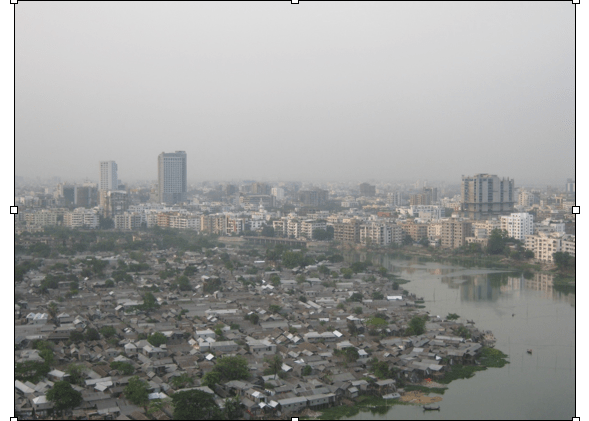Advertisement
Perspective: Poverty, Health And Forced Eviction In The Slums Of Bangladesh
http://www.youtube.com/watch?v=Z0nJ6728MHE
By Venita Subramanian and Maria A. May
Guest Contributors
(Note: Venita and Maria live and work in Dhaka, Bangladesh at BRAC, a poverty alleviation organization. Maria passes through Korail every day on her way to work. This piece represents our personal views, though draws on observations of our colleagues and the information we’ve been able to find in local sources.)
On April 4, one of the largest forceful slum evictions in Bangladesh’s history took place in Dhaka’s Korail bustee. Households, schools and shops within twenty meters of the road were bulldozed, with approximately 3,500 individuals affected.
“Our water supply was cut off and we have no place to go,” explained one of the affected women.
“The way the whole process was carried out was very inhumane. We received an announcement on April 3rd and the next morning, the eviction began. We were given just one night to dismantle our homes, gather our belongings and relocate ourselves. Where will we go?” said another victim.
Local shops and bazaars, the main sources of food for the community, were closed.
Many non-profit organizations, including BRAC, provide health services within the slums. Bangladesh’s recent successes in improving women’s health demonstrate that despite significant challenges, innovative, low-cost strategies can have a major impact. Under normal conditions, workers at BRAC’s health program are concerned that slum-dwellers may miss out on the continuum of care because of high rates of migration, both within slums and from slum to village. The recent demolition of Korail exacerbates this challenge for regular programming and introduces new challenges. The network of communication between field-based community health workers and residents is also disrupted, creating a rift in access to basic primary health services, including maternal and child health services.

Few can boil their water, lacking money for fuel or wood to burn, and the few existing latrines often empty directly into the lake. The combination of crowding and unsanitary conditions creates the perfect environment for an outbreak of diarrheal disease.
These are just some of the immediate health consequences that have been documented. Bangladesh has a high rate of tuberculosis, which requires daily treatment for six months to cure. Evictions and displacement can interrupt treatment, creating risks for drug resistance. BRAC’s programs depend largely on the activities of community health workers, who live in these communities and are equally vulnerable to these events.
In just a week, Korail’s slum dwellers demonstrate astonishing resilience; the rubble is quickly giving way to rebuilding structures, new water piping, and families resettling. Within a few weeks, most signs of last week’s violence will be invisible to most of us. Not all slums will recover so easily. Even this community remains in danger; obviously living with the constant threat of eviction takes a toll — economically, socially, and psychically.
“We have created a structure where there is no place but slums for low-income people to live. They are the engine of the informal economy and yet the State likes to pretend that they don’t exist and this is the result of that indifference,” said Asif Saleh, Director of Communication, BRAC.
Dhaka is home to over three million slum dwellers, all of whom reside in what are considered illegal structures. According to a research done by the Department for International Development (DFID), at least 60,000 people were displaced due to the evictions from 27 slums in Dhaka between 2006 and 2008. Bangladesh’s success in reducing poverty is threatened by forceful evictions that disrupt communities, destroy livelihoods, and uproot families.
The urban poor deserve better policies, but without assistance, are rarely heard. On April 8, BRAC and several other organizations have submitted a demand of justice notice, to ensure that the government is in compliance with the High Court’s requirements of providing adequate notice, compensation, resettlement and rehabilitation to affected households.
"However technically legal the form of the eviction may have been, nothing can justify the fact that the manner and spirit in which it was carried out was fully devoid of humanity," said Faustina Pereira, Human Rights Activist and Director of BRAC’s Human Rights and Legal Services Programme. "No adequate advance notice was given, no compensation mentioned - and rehabilitation is so distant and unreal a dream that no one even utters it. What a mockery of constitutional safeguards of life, livelihood and shelter."
This is a legal issue, but also one that concerns those interested in health and development; having secure housing is a necessary foundation for well being. Bangladesh’s urban poor deserve a place not only in the growing economy, but also space to live.
There was peaceful demonstration on the day following the evictions. “Without relocation, slum will not disappear,” the signs said, “Don’t destroy schools, mosques, and madrassas.”
For more information, read this personal reflection from a BRAC staffer; and this op-ed on the eviction in a local paper and see more pictures here
This program aired on April 10, 2012. The audio for this program is not available.
